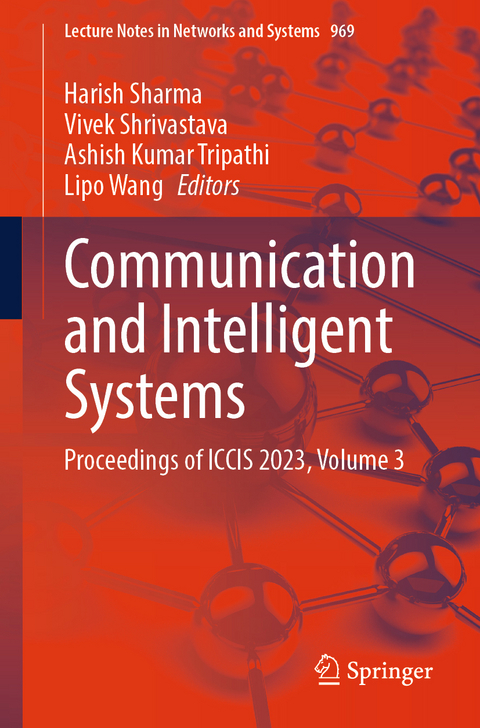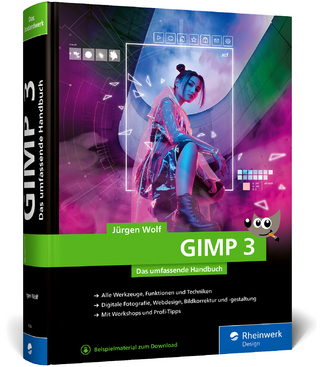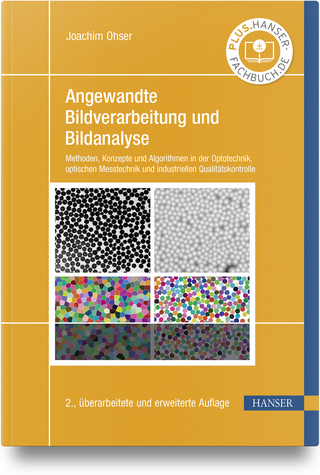
Communication and Intelligent Systems
Springer Verlag, Singapore
978-981-97-2081-1 (ISBN)
Dr. Harish Sharma is Associate professor at Rajasthan Technical University, Kota, in Department of Computer Science & Engineering. He has worked at Vardhaman Mahaveer Open University Kota and Government Engineering College Jhalawar. He received his B.Tech. and M.Tech. degrees in Computer Engg. from Govt. Engineering College, Kota, and Rajasthan Technical University, Kota, in 2003 and 2009, respectively. He obtained his Ph.D. from ABV-Indian Institute of Information Technology and Management, Gwalior, India. He is Secretary and one of the founder members of Soft Computing Research Society of India. He is Lifetime Member of Cryptology Research Society of India, ISI, Kolkata. He is Associate Editor of “International Journal of Swarm Intelligence (IJSI)” published by Inderscience. He has also edited special issues of the many reputed journals like “Memetic Computing”, “Journal of Experimental and Theoretical Artificial Intelligence”, “Evolutionary Intelligence”, etc. His primary areaof interest is nature-inspired optimization techniques. He has contributed to more than 105 papers published in various international journals and conferences. Dr. Vivek Shrivastava has approx. 20 years of diversified experience of scholarship of teaching and learning, accreditation, research, industrial, and academic leadership in India, China, and USA. Presently he is holding the position of Dean Research & Consultancy at National Institute of Technology Delhi. Prior to his academic assignments he has worked as System Reliability Engineer at SanDisk Semiconductors Shanghai China and USA. Dr. Shrivastava has significant industrial experience of collaborating with industry and Government organizations at SanDisk Semiconductors. He has made significant contribution to the design development of memory products. He has contributed to the development and delivery of Five-Year Integrated B.Tech.-M.Tech. Program (Electrical Engineering) and master’s program (Power Systems) at Gautam Buddha University Greater Noida. He has extensive experience in academic administration in various capacities of Dean (Research & Consultancy), Dean (Student Welfare), Faculty In-charge (Training & Placement), Faculty In-charge (Library), Nodal Officer (Academics, TEQIP-III), Nodal Officer RUSA, Experts in various committees in AICTE, UGC, etc. Dr. Ashish Kumar Tripathi (Senior Member, IEEE) received his M.Tech. and Ph.D. degrees in computer science and engineering from the Department of Computer Science and Engineering, Delhi Technological University, Delhi, India, in 2013 and 2019, respectively. He is currently working as Assistant Professor at the Department of Computer Science & Engineering, Malviya National Institute of Technology (MNIT), Jaipur, India. His research interests include big data analytics, social media analytics, soft computing, image analysis, and natural language processing. Dr. Tripathi has published several papers in international journals and conferences including IEEE transactions. He is Active Reviewer for several journals of repute. Dr. Lipo Wang received the bachelor’s degree from National University of Defense Technology (China) and Ph.D. from Louisiana State University (USA). He is presently on the faculty of the School of Electrical and Electronic Engineering, Nanyang Technological University, Singapore. His research interest is artificial intelligence with applications to image/video processing, biomedical engineering, and data mining. He has 330+ publications, a US patent in neural networks, and a patent in systems. He has co-authored 2 monographs and (co-)edited 15 books. He has 8,000+ Google Scholar citations, with H-index 43. He was Keynote Speaker for 36 international conferences. He is/was Associate Editor/Editorial Board Member of 30 international journals, including 4 IEEE Transactions, and Guest Editor for 10 journal special issues. He was Member of theBoard of Governors of the International Neural Network Society, IEEE Computational Intelligence Society (CIS), and the IEEE Biometrics Council. He served as CIS Vice President for Technical Activities and Chair of Emergent Technologies Technical Committee, as well as Chair of Education Committee of the IEEE Engineering in Medicine and Biology Society (EMBS). He was President of the Asia-Pacific Neural Network Assembly (APNNA) and received the APNNA Excellent Service Award. He was Founding Chair of both the EMBS Singapore Chapter and CIS Singapore Chapter. He serves/served as Chair/Committee Members of over 200 international conferences.
Deep Learning-Based Attack Prediction for Returns in Supply Chain Management Systems.- A Effective Framework for Early Detection and Classification of Cardiovascular Disease (CVD) using Machine Learning Techniques.- A Coherent Ensemble Modeling Approach for Diabetic Retinopathy Using MIFNET Method.- A Novel Approach for Agricultural Crop Classification with Incremental Learning.- Coronary Vessel Segmentation in X-ray Using U-Net.- Unveiling Clarity: A Survey on Haze Removal Techniques using Deep Learning Approaches.- Surveying Strategies: Detecting Sinkhole Attacks in IoT Networks.- Prediction of Thoraco Pulmonary Disorders Based on Pattern of Lung Injury in CT/HRCT using Deep Learning Techniques.- Facial Expression Recognition in ATM Surveillance System.- Challenges, Communications, Routing Protocols and Applications of FANETs- A Systematic Review.- Prediction of Chronic Venous Insufficiency Condition using Infrared.- Thermography andMachine Learning.- A Review of Brain Tumor MRI Classification and Feature Extraction Using Varying Methods.- Time Domain Specifications of Step Responses of Both.- Underdamped and Overdamped System: In Correction to MATLAB Inbuilt ‘stepinfo’ Function.- Transfer Learning Based Speed Limit Traffic Sign Recognition with Multilingual Audio Alerts.- Impact of the Use of Social Media among University Students using Machine Learning.
| Erscheinungsdatum | 04.06.2024 |
|---|---|
| Reihe/Serie | Lecture Notes in Networks and Systems |
| Zusatzinfo | 161 Illustrations, color; 39 Illustrations, black and white |
| Verlagsort | Singapore |
| Sprache | englisch |
| Maße | 155 x 235 mm |
| Themenwelt | Informatik ► Grafik / Design ► Digitale Bildverarbeitung |
| Informatik ► Theorie / Studium ► Künstliche Intelligenz / Robotik | |
| Technik | |
| ISBN-10 | 981-97-2081-8 / 9819720818 |
| ISBN-13 | 978-981-97-2081-1 / 9789819720811 |
| Zustand | Neuware |
| Informationen gemäß Produktsicherheitsverordnung (GPSR) | |
| Haben Sie eine Frage zum Produkt? |
aus dem Bereich


